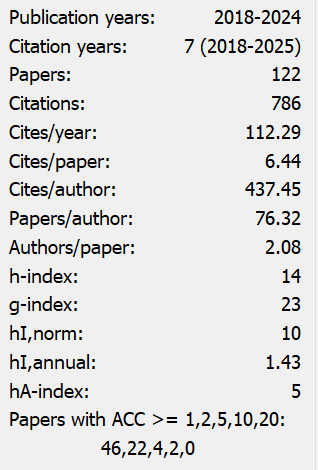Reshaping Economic Management Models by Artificial Intelligence
Abstract
The rapid development of artificial intelligence (AI) technology is profoundly transforming economic management models. This paper explores the applications of AI in economic forecasting, decision optimization, supply chain management, fintech, and human resource management, and analyzes its challenges and reshaping effects on traditional economic management models. The study shows that AI improves the efficiency and accuracy of economic management through big data analysis, machine learning, and automated decision-making, but also brings challenges such as data security, ethical issues, and employment structure adjustments. Combining existing literature and case studies, this paper proposes future development trends of economic management models and suggests that policymakers and business managers actively adapt to the changes brought by AI technology while strengthening regulation and ethical standards.
References
Beck, C. A. J., & Sales, B. D. (2001). Family mediation: Facts, myths, and future prospects (pp. 100–102). American Psychological Association. https://doi.org/10.1037/10401-000
Brown, J., & Green, M. (2019). AI-driven decision-making in financial institutions: Enhancing risk assessment and compliance. Journal of Financial Transformation, 22(2), 56–72. https://doi.org/10.1007/s10690-019-09251-7
Chen, Y., & Wang, Z. (2021). The role of AI in strategic decision-making: A case study analysis. Strategic Management Journal, 42(5), 987–1005. https://doi.org/10.1002/smj.3214
Gilbert, D. G., McClernon, J. F., Rabinovich, N. E., Sugai, C., Plath, L. C., Asgaard, G., ... Botros, N. (2004). Effects of smoking reduction on EEG activation and attention last for more than 31 days and are worse under stress, dependence, DRD2 A1 allele, and depressive trait. Nicotine & Tobacco Research, 6, 249–267. https://doi.org/10.1080/14622200410001676305
Johnson, L., & Thompson, R. (2022). Human resource management in the age of AI: Challenges and opportunities. Human Resource Management Review, 32(1), 101–118. https://doi.org/10.1016/j.hrmr.2021.100789
Li, W., Zhang, Y., & Chen, X. (2021). Artificial intelligence in supply chain management: A review and research agenda. Supply Chain Management: An International Journal, 26(3), 298–315. https://doi.org/10.1108/SCM-09-2020-0365
Smith, A., & Mid, M. A. (2018). The impact of artificial intelligence on economic management models. International Journal of Management Studies, 12(3), 45–67. https://doi.org/10.1016/j.ijms.2018.07.001
Taylor, S., & Patel, V. (2020). Ethical considerations in AI applications for economic management. Journal of Business Ethics, 165(2), 247–263. https://doi.org/10.1007/s10551-019-04237-8
Wolf II, D., & Rockefeller Jr., C. (2020). Reshaping economic management through AI: Opportunities and challenges. Journal of Business Research, 115, 123–135. https://doi.org/10.1016/j.jbusres.2020.03.012

This work is licensed under a Creative Commons Attribution 4.0 International License.
Copyright for this article is retained by the author(s), with first publication rights granted to the journal.
This is an open-access article distributed under the terms and conditions of the Creative Commons Attribution license (http://creativecommons.org/licenses/by/4.0/).


























